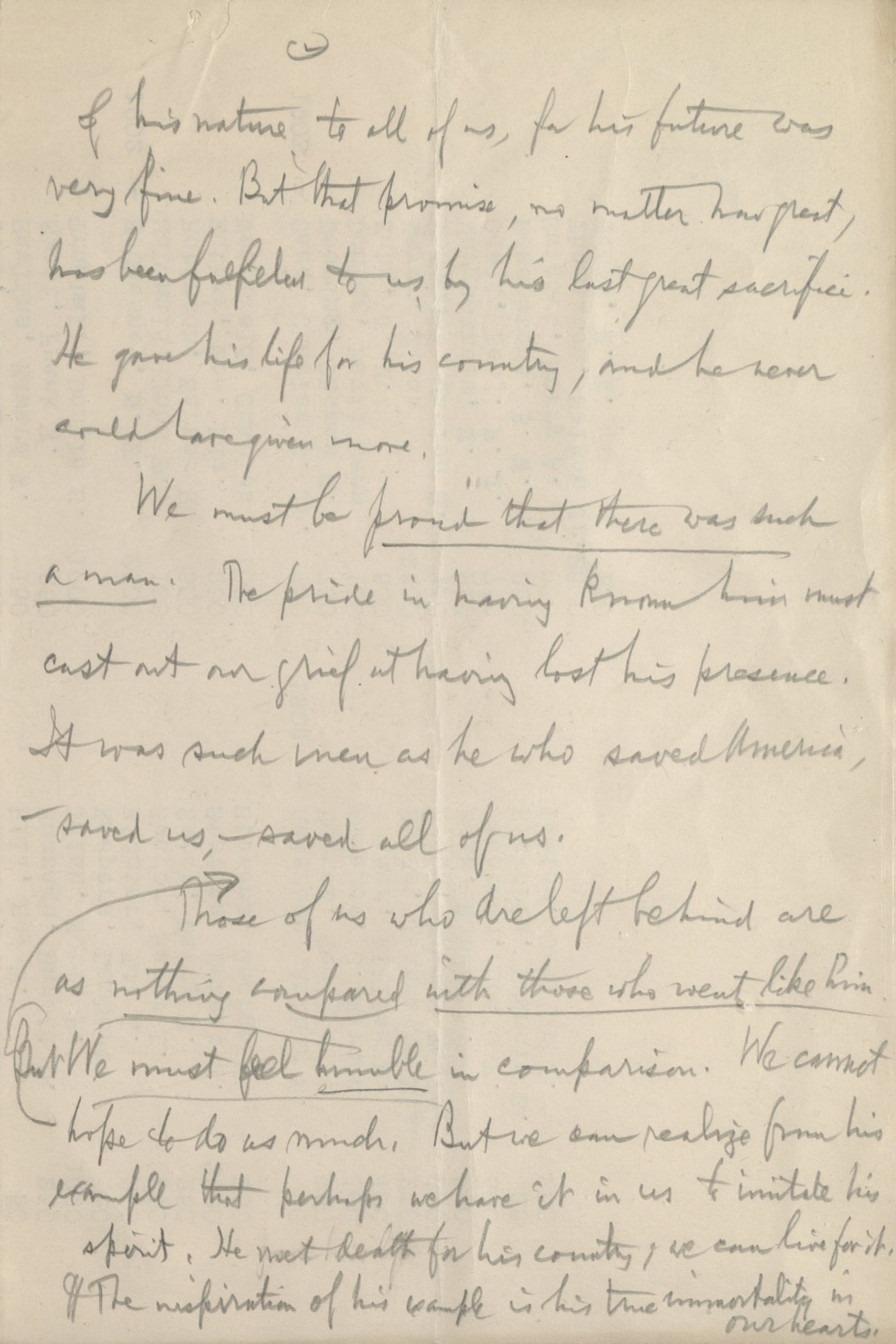Benjamin Wohl was one of nine Northwestern Law students who gave their lives serving in the war.
Wohl trained with the Air Service in Champaign, Illinois and in Egypt before his deployment to France. During his early days in Europe, Wohl’s squadron was tasked with readying the camps for the arrival of the rest of the troops. In a letter to the Law School newsletter, he complained about the unexciting work, writing it off as “interior decorating.” In the same letter, he wrote with excitement about receiving his commission, understanding his life would be changing soon. He wrote, “I have arrived at last. I am training at a French aviation school and my cup of joy is truly filled to over flowing. Bear in mind please, that I…enlisted in the Aviation section and that I have waited long to fly.” Wohl died in an airplane accident on October 2, 1918, only a few months later.
In these notes from a speech given by Wigmore at Wohl’s funeral, Wigmore strikes a patriotic and thankful tone: “The pride in having known him must cast out our grief with having lost his presence. It was such men as he who saved America—saved us—saved all of us…The inspiration of his example is his true immortality in our hearts.”
Wohl, along with the other eight students who lost their lives in the war, are commemorated in the Northwestern University manuscript, “The Men Who Died in Military and Naval Service During the World War.”
This item is generously on loan from the Northwestern University Archives.
Transcription of the Eulogy for Benjamin Wohl by John Henry Wigmore
Benjamin Wohl’s (1918) Funeral, Nov. 17/20
In June 1918, Benjamin Wohl wrote back from France, where he had just started in at Issoudun: “I am here. That is more than enough for me.”
It was enough for him. And it was enough for his country. That was the true message which his career has for us. It is enough to devote our lives to our country. All other interests become as nothing. I am here, he said, serving my country: that overshadows all other desires, needs, hopes. Nothing else counted any more.
And it is enough for us, as well as for him. What we lost, those here well know. He had the makings of a fine future. His family, his classmates, his friends, can testify what his character meant to them. It would be needless to enlarge on that. The promise of his nature to all of us, for his future was very fine. But that promise, no matter how great, has been fulfilled to us, by his last great sacrifice. He gave his life for his country, and he never could have given more.
We much be proud that there was such a man. The pride in having known him must cast out our grief at having lost his presence. It was such men as he who saved America, saved us, saved all of us.
But We must feel humble in comparison. Those of us who are left behind are as nothing compared with those who went like him. We cannot hope to do as much. But we can realize from his example that perhaps we have it in us to imitate his spirit. He met death for his country; we can live for it.
¶The inspiration of his example is his true immortality in our hearts.


